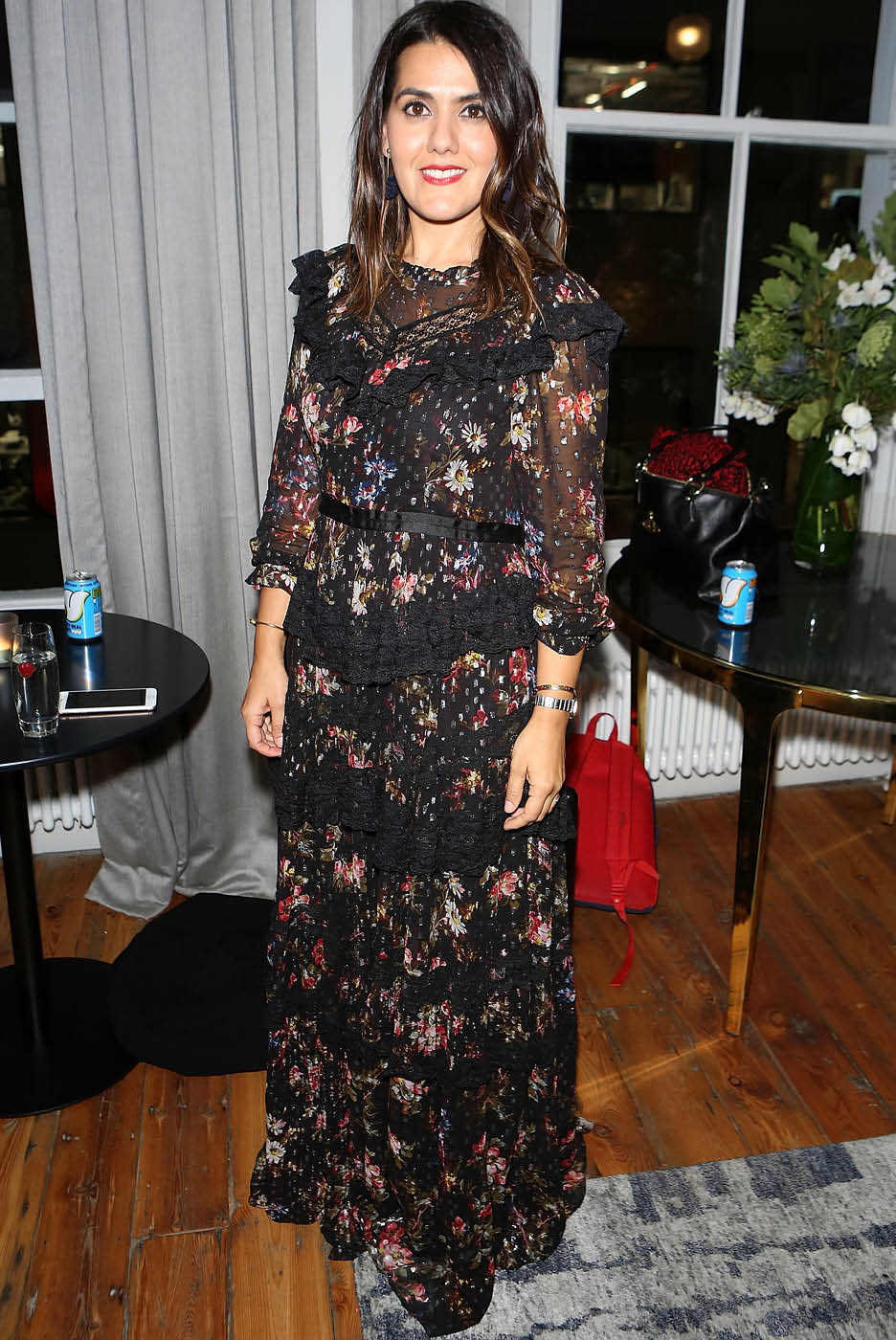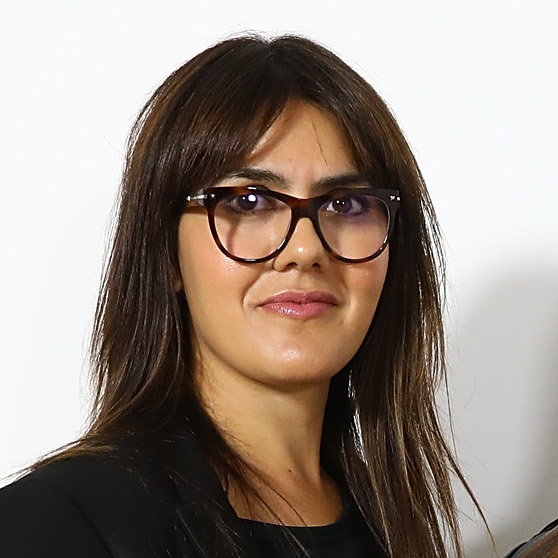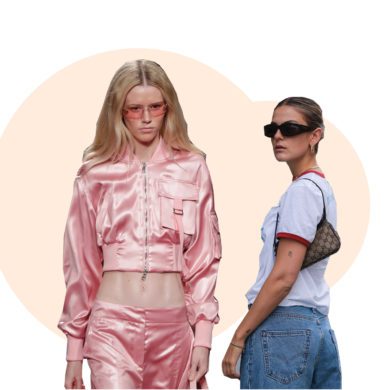This story was first published on Farrah’s newsletter, Things Worth Knowing, on email subscription platform Substack.
It should have been one of the best nights of my life. I was 39. I had just won editor of the year for the second time in a row at a glittery awards ceremony in central London. A roomful of my colleagues and peers cheered and whistled as I walked to the stage in a dress so perfect I almost cried when I saw it in the mirror. You know those moments you imagine having when you’re starting out in your career? This was that moment. And I ballsed it up.
Here’s what should have happened. I should have drunk it all in. I should have taken pictures and written an entry in my diary. I should have hung around for the after-party, drunk too much, told friends how much I loved them and then left my award on top of the toilet cistern. But I didn’t do any of these things. Instead, the minute the necessary photographs were done, I tossed the award in a reusable shopping bag the lady in the cloakroom had given me, called a taxi and skulked back to my hotel room, heavy and sad.
It’s madness looking back now, but then it’s easy for hindsight to patronise the past. You see, the very same night I had opened up my Instagram account to see that a distant peer (not someone I know well at all, in fact) had landed a huge new job. Now I had a job. One I loved very much. And one which, at that point in my career at least, I had no intention of leaving.
But that was not the point. The point was she had something and I did not. And it filled me with a feeling that was hard to place. Not anger exactly, but sadness, underpinned by an inexplicable, overwhelming sense of unfairness. Because that’s what it felt like in that moment – unfairness. She had something that was bigger and better than I had. I didn’t want what she had, you are to understand. I only wanted her to not have it. And so, the best feeling I can alight on is perhaps envy, that most useless and intangible of emotions.
************************
I have been thinking about envy a lot recently. Last week I watched three things on TV – The Tinder Swindler, Inventing Anna and the excellent BBC drama Chloe. Perhaps you have seen them, too. Was it mere chance that the biggest shows of the last few weeks centred on individuals whose glossy lives make the rest of us feel bad when we’re sat in our stained dressing gowns eating cereal for breakfast?
This morning meanwhile, (over cereal, in a stained dressing gown) I read about the death of cricketer Shane Warne, who, for a brief, puzzling period was engaged to Elizabeth Hurley but who, throughout their relationship, failed to curtail his envy towards the friendship she shared with Hugh Grant. And every day, for the last few weeks I have looked at Putin; his pale, impassive face belying the actions of a man hell-bent on destroying the western world, fuelled by the envy of what his country once had and no longer does.
************************
I have been envious most of my life. At school I was envious of girls with better grades and longer legs and more access to boys. At college I was envious of those who had cars and freedom from overbearing parents as well as those who got accepted to Oxbridge when I did not. As a young woman I was always envious of those who were thinner than me, prettier than me and dressed better than me.
I have been envious of weird things, too, like people who waltz into those lovely big houses in South Kensington. And people running in the rain while I’m in the car eating a chocolate bar. I have been envious of my husband’s ex-girlfriends and people on Instagram who I have never met. I have even been envious of my own life and its inability to live up to the image I portray of it on social media.
Now I know this all sounds utterly disgraceful. But that’s the thing about envy, you know it is wrong. On paper, at least, I am an accomplished career woman. I am happily married. I have my health and my family and access to many things that others do not. How, you would think, could you possibly want more?
But envy is not about wanting more. It is about not wanting others to have more than you. In that way, envy is an unconscious measuring up of status, with the painful realisation that someone may have more of it than you.
But here’s where it gets tricky. Because while feeling envy towards others may be a soul-destroying endeavour, to be envied by others is, whisper it, kind of delicious.
I see you shaking your head out there. I hear you quietly disagreeing under your breath. I know you feel this is not you or anyone you know and that you couldn’t think of anything more awful than to incite another person’s envy.
And yet… I know you have holiday photographs that paint a misleading picture of the life you actually live. I have seen your Twitter biog that announces only your greatest achievements. I know you have posted about job promotions and your glossy group of friends and that you take pictures of your dinner in fancy restaurants that the rest of the world will never go to. You are not doing this out of altruism. There is no kindness in posting a picture of how small your waist looks in a new swimsuit. There is little joy for others to be found in the news you were just made employee of the year. You do it, and I do it and everyone we know does it, because we want the world to be envious. We want them to see what we have and what they do not.
I’ll give you a deeply shameful example – a few weeks ago I was made a fellow at my old university. I was delighted with this news. I rang my parents and told my husband and even dropped it into conversation with some extended family members. They were pleased for me, in the pure, unadulterated way only family members can be. That should have been enough. But instead I posted it on Instagram.
I felt uneasy the minute I did it. This wasn’t news to share with the world. Deep down I knew this. This was an attempt to assert my rank. ‘Look at me! Be impressed! Validate my accomplishments with your likes and love hearts!’
My husband looked at my phone as it lit up with thousands of likes and hearts and clapping hands.
‘How come you posted that?’ he asked innocently enough.
‘Because I’m proud of my achievements,’ I snapped back a little too quickly.
He raised one eyebrow then returned to his work.
Of course the first rule of envy is understanding that full denial of its existence is envy itself dressed up as the moral high ground. If you’ve ever called anyone ‘vulgar’ for carrying a new bag, or ‘attention seeking’ for commanding a room, that’s envy in fancy dress right there.
The second rule of envy is understanding that it is inescapable (well, unless you’re a monk perhaps). Knowing this, for me at least, brings it’s own quiet relief. Understanding that those above you and below you experience it too makes it feel less shameful.
And here’s the third rule of envy: you can’t be envious of the world. Though social media and a smart phone in your back pocket means you can cast your envy net far and wide, that doesn’t mean you should. A 43-year-old mother being envious of a 25-year-old wellness influencer’s body is as futile as the sun being envious of the rain. In the same way that a 25-year-old junior being envious of a 43-year-old boss is as pointless as the rain being envious back. They are different, with different dreams and different paths to get there. Competing with distant players playing different games, therefore, will always be futile.
As for me, nowadays I try to rarely look left or right, but instead focus on the path I have chosen for myself. Sure, it feels like I’m occupying a smaller world but it’s a world I can control. And it’s a world in which i can be happy for a peer living on the other side of the world with a shiny big job that she has and I do not.
This story was first published on Farrah’s newsletter, Things Worth Knowing, on Substack. A former magazine editor, Farrah is now the Head of Writer Partnerships at Substack UK. You can subscribe to her newsletter here.














1 Comment